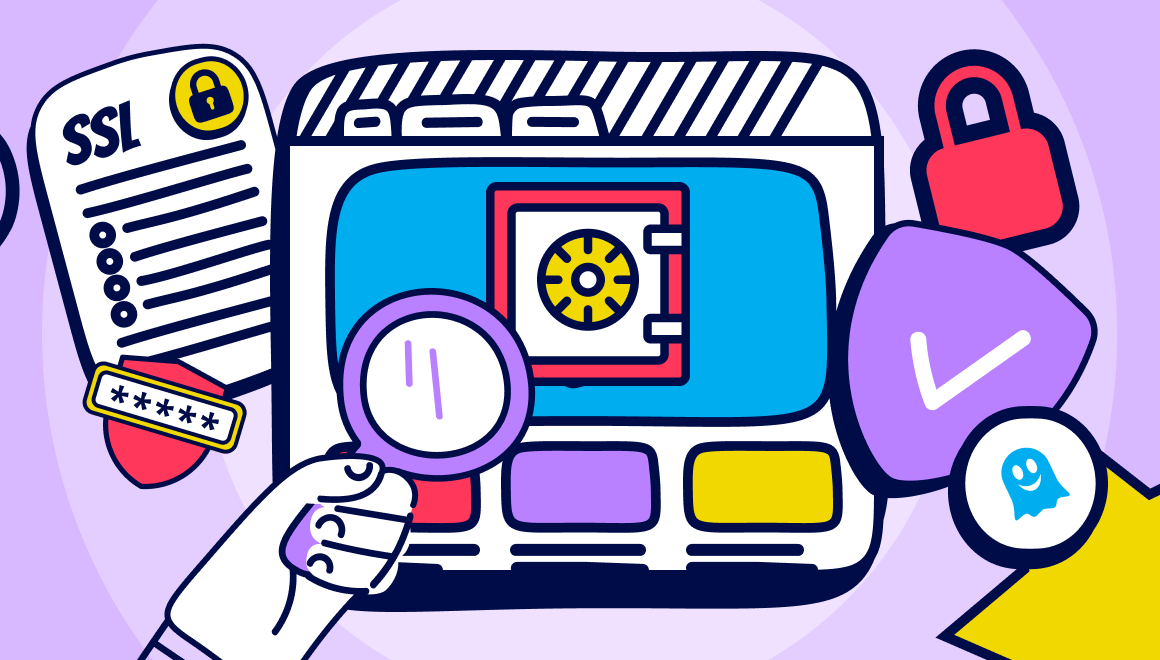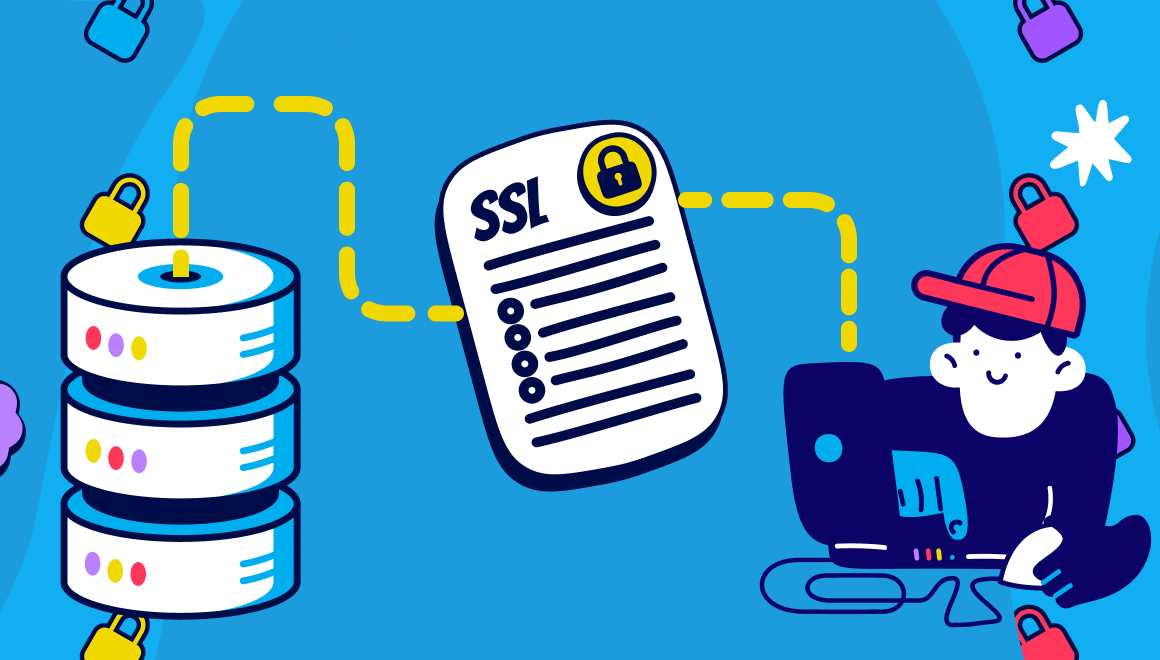Guide
What is Web Tracking, and How Can I Browse Safely?
Key Points:
- Companies use website tracking technologies like cookies and fingerprinting to track and analyze users’ behavior online.
- Personal data is mainly used for tracking and profiling purposes.
- Ghostery is one of the most advanced ad and tracker blockers on the market today.
- The Ghostery Privacy Suite offers complete privacy protection to enhance your browsing experience and improve your digital health.
What is Web Tracking, and How Can I Browse Safely?
You leave a digital footprint every time you use the internet and companies use website tracking tools to collect your personal data. Internet tracking is a widespread practice and digital privacy is becoming an increasing concern for many people.
Privacy statistics
In a recent survey, 67% of internet users worldwide said they are more concerned about their online privacy than they’ve ever been and 86% have tried to remove their personal data from the internet.
This blog will tell you everything you need to know about website tracking. Learn how browser cookies and fingerprinting techniques follow your online activity, along with the best ways to use the web without being tracked.
What is web tracking?
Website tracking goes by various names including internet tracking, browser tracking, web tracking, and cookie tracking. Tracking is the method of collecting, storing, and analyzing user browsing activity across the internet.
Companies use various software, including website trackers, beacons, and other tracking files, to monitor your interactions with their websites — a process called website visitor tracking. They also follow you across the internet to observe your other online activities.
While some use "website tracking" and "web tracking" interchangeably, they differ slightly. Website tracking simply monitors how a website changes over time. In contrast, web tracking, as described here, encompasses browser tracking and other data collection techniques, such as gathering your IP address.
Some companies collect data internally, while data brokers compile and sell data for other companies' use.
Web tracking is most often done through tracking cookies or browser fingerprinting. We will discuss these concepts in more detail further down.
First-party vs. third-party tracking
First-party tracking is when the website you visit monitors your behavior to customize your experience.
Third-party tracking involves other companies using web trackers to follow you on a website to tailor ads. This explains why advertisements for the same pair of sneakers appear across different websites. They are tailored to you, most likely through third party cookies.
Fourth-party tracking takes web trackers a step further by using cookies from other providers.
While first-party tracking can be useful, third and fourth-party tracking raise privacy concerns as additional parties access your data.
Who is tracking me online?
Various companies track your behavior online and non-private search engines like Google also play a key role in internet tracking.
WhoTracks.Me
Ghostery has been building the world’s largest tracker database: WhoTracks.Me. Our goal is to bring transparency to the web by exposing who collects, analyzes, and sells user data online for profit.
Ghostery’s anti-tracking technology detects website trackers and tracking information is then reported and published on WhoTracks.Me. The reported information is strictly related to the observed trackers and never includes information about users. This data is used to continuously refine Ghostery’s algorithm which enhances the protection we offer to all our users.
Tracker Preview Wheel
You can also use a tool like Ghostery’s Trackers Preview Wheel to identify tracker heavily-loaded sites and make informed decisions when browsing or searching while using non-private search engines. This feature is part of Ghostery’s Privacy Suite and aims to bring transparency to online tracking.
What web activity is tracked?
Most of your web activity and web browsing history can be tracked. This includes:
- Websites you visit
- Purchases you make
- All your interactions on a page (what you click on, what you type in etc.)
A recent study on email and password extraction revealed that web trackers can capture your data before you even submit a form. This means they may collect personal data like your email address before such data is submitted.
What is web tracking data used for?
MIT Press explains how “data tracking was initially conducted with the goal of offering personalized experiences to web users. This included individually targeted marketing, custom news feeds, and recommended products.”
Nowadays, website tracking is commonly used for profiling purposes and data trackers play a crucial role in the online economy. Google is the world’s largest data tracker and the platform made roughly 209.49 billion US dollars in ad revenue in 2021 alone.
You can read this article by MIT Press if you want to learn more about the history of data tracking.
Types of website tracking: cookies and fingerprints
Companies use two main types of internet tracking technologies to collect your data online: cookie tracking and fingerprinting.
What are tracking cookies on the internet?
Records show that internet cookies were invented by Lou Montulli in 1994. Tracking cookies are text files that store small amounts of information from a web browser session on a website. This information can then be accessed by the user, the site they are on, or third-party companies.
What do cookies track?
Cookies can track many types of data such as search and browser history, what web pages you click on, and your browsing behavior such as your scrolling speed. This includes third party cookies.
What are cookies used for on websites?
Tracking cookies were introduced to streamline and enhance browsing experiences. For instance, cookies can autofill your login details and remember what was in your shopping cart if you accidentally close the web page.
However, web tracking cookies are also used to analyze users’ behaviors and many companies use cookies for tracking and profiling purposes.
How to remove tracking cookies
Check out our blog What Are Tracking Cookies? for hands-on solutions on how to remove web tracking cookies.
What is browser fingerprinting?
Browser fingerprinting is a special type of internet tracking that is more intrusive than regular cookie tracking. It allows companies to build a unique user profile and identify you on the internet among millions of other internet users.
How do fingerprint cookies track?
Companies use special scripts on their tracking website to collect information such as your default language, time zone, plugins in your browser, website visitor tracking, and many other settings. The aim is to collect enough information about you to build a unique profile.
Check out this article by Mozilla if you want to learn more about browser fingerprinting.
How to browse safely
There are plenty of actions you can take to prevent browser tracking and protect your personal data online.
Here are some of the best ways on how to browse safely:
- Use a non-tracking browser: There are browsers that do not track your online behavior by design. For instance Brave is a private, non-tracking browser with private search available.
- Use a VPN: A VPN will conceal personal information like your IP address and your geographic location when you are browsing the web. This will give you greater anonymity when using the internet and protects against IP address tracking.
- Clear your private data: It is a good idea to clear browsing data at the end of each session if you share your computer/device and want to keep your activities private.
Ghostery: the ultimate solution to website tracking
Ghostery offers a complete Privacy Suite with a solution to serve every use case. If you don’t want to change your browser to a non-tracking browser, you can install the Ghostery browser extension on all popular browsers to prevent tracking and improve your digital privacy.
In summary, the Ghostery browser extension:
- Blocks ads and pop-ups on websites and non-private search engines
- Blocks trackers on websites and non-private search engines
- Prevents private data from leaving your browser
- Prevents profiling
How does Ghostery work?
Ghostery is one of the most advanced ad and tracker blockers on the market today. Our browser extension is equipped with AI technology which prevents website tracking to improve your digital privacy and browsing experience.
The Ghostery browser extension also provides insights about internet trackers on web pages to improve transparency and raise awareness about data tracking.
Does Ghostery work on all devices?
Ghostery is compatible with all major web browsers and devices including Chrome, Firefox, Edge, Opera and Safari.
Download Ghostery today!
Download the Ghostery Privacy Suite if you want to prevent website tracking, improve your digital privacy, and enhance your browsing experience. Get in touch with our friendly team if you have any questions.


